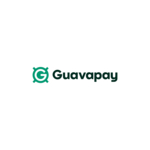Unit raises Series A funding to offer banking intergration
San Francisco-based start-up, Unit, has raised $15 million in a Series A round aimed towards its banking services application programming interface (API).
According to Crunchbase, the start-up has raised a total of $18.6 million to-date, with a $3.6 million seed round in November 2019, and its latest $15 million Series A this month.
TLV Partners, Operator Partners, Flourish Ventures, Aleph and Better Tomorrow Ventures, all participated in the latest funding round, in addition to 30 angel investors. TLV Partners and Better Tomorrow Ventures also participated in its seed funding last year.
Unit has built a platform that lets third parties integrate banking services like payment cards, checking accounts, cash advances and money transfers into their own businesses by way of an API.

Doron Somech, CTO (left) and Itai Damti, CEO (right)
The investment will go toward continuing to add features, hire more employees and grow the company’s user base.
CEO and co-founder, Itai Damti, writes on Unit’s site, that the company’s goal is “to help you make sense of banking infrastructure and understand the various approaches”.
This is not the first time the Damti has led a fintech start-up. He writes that “Doron [ Doron Somech, chief technology officer (CTO)] and I have previously co-founded and spent a decade building Leverate”. This was a technology platform for online brokers, which Damti claims “now processes $100b+ in monthly trading volume”.
“Since 2008, we’ve witnessed and enabled the rise of fintech 1.0, which was defined by products. It was all about start-ups focusing on one financial product (investing, lending etc.) that raced to gain distribution before the incumbents could innovate,” notes Damti.
“We’re launching Unit just as the conversation in fintech is shifting from products to audiences. It’s by now become cliché, but in the past decade, every company has become a tech company. Increasingly, many companies also want to be fintech companies — or at least offer financial services to their audiences.
“Financial features offer more value, increase loyalty and help those companies create game-changing revenue streams.
“We think of this shift as the beginning of a new era: fintech 2.0.”
Unit claims to provide its customers with “modern docs, sandbox and dashboard access in minutes”.
Read more: Banking Tech Awards 2020 winners unveiled!
It notes that it only requires one API call to approve an end-customer, whether they’re an individual or a business. It also offers full programmatic access to “all the concepts that matter”, such as: accounts, terms, transactions, payments and statements – along with every piece of relevant data.
It also states that it will handle fraud prevention, security, permissions, reconciliation and data protection in the background.
Although some commentators would be tempted to say that this underscores the growing competition in this space, our resident thought-provocateur, Leda Glyptis, writes about how “embedded finance is the flavour of the month”. She notes that, “embedded finance is not new in that banks look at it and go: ‘will it break me, can I make money from it, can I own it?’”.
Glyptis concludes by saying “embedded finance is happening as people leverage the art of the possible to create new businesses, platforms, experiences and products. It’s an act of assertive creativity, enabled and powered by technology”.
Additionally, Draper Esprit partner, Vinoth Jayakumar, tells FinTech Futures during the What the Fintech? podcast, that “every interaction we have has something to do with money, so it is by definition already embedded”.
He adds that: “Embedded finance touted by large insurance firms or telecoms companies. Have something that’s not financial and use a platform like Railsbank or Mambu to provide a service to allow them to sell banking to their subscribers. Just get straight to the point. It’s cash for this or insurance for that, or lending for this. You can skip the embedded piece.”
There certainly has been some growth in investment in platforms such as Unit, Galileo, FintechOS, Rapyd, Stripe and other similar players in the past two years. Firms across the spectrum of industries are simply looking at a way to streamline financial services offerings by leveraging more sophisticated technology. Although it is arguably not a new invention – especially in Asia with players like PingAn, Line, Tencent etc – these firms are normalising the necessity of integrated fintech in the West.










































